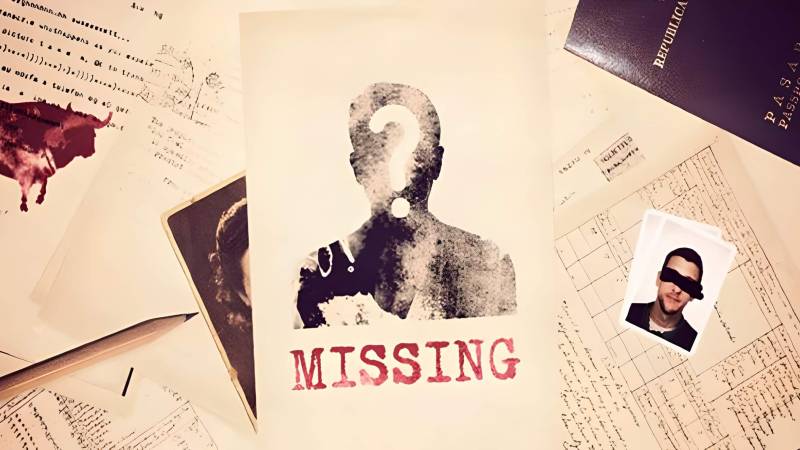
In his recent Turbat visit, the newly ‘elected’ chief minister of Balochistan, Sarfraz Bugti, termed the very concerning issue of enforced disappearances as ‘self-disappearances’. This is very dangerous in its nature, as far as the issue is concerned. On the one hand, this term poses a threat to the victims of enforced disappearances; on the other hand, it shows the non-serious attitude of the government in resolving the very grave issue of enforced disappearances. Not only does the new chief minister mislabel enforced disappearances as ‘self-disappearances’, but he also calls the struggle of families and activists to curb enforced disappearances as mere ‘exaggerated political agenda’ and ‘baseless propaganda’. This is very pathetic of the so-called chief minister and the other beneficiaries of the conflict and status quo in Balochistan.
For the last two decades, in particular, enforced disappearances have transpired to be a very grave issue in Pakistan as well as across the world. Balochistan, administered as a province in Pakistan, is termed as the ‘home of enforced disappearances’ where thousands of political activists, journalists, teachers, professors, doctors, human rights activists, sportsmen, students, and people from every walk of life have become the soft and hard state targets, including being subjected to extrajudicial killings as well as enforced disappearances which top the list.
People get ‘disappeared’ violently by law enforcement agencies in broad daylight as well as late at night from their homes, workplaces, and markets, even when they are journeying from one place to another. Other people witness everything with their eyes, but since the perpetrators are the ‘custodians of the Constitution’, no one speaks or acts against them out of fear of reprisals. The bills put on the assembly tables on this subject have themselves disappeared: the same has been the case with the bill presenters and other ministers at the state level. Everyone who speaks of curbing enforced disappearances themselves becomes a target. That is how enforced disappearances have become a norm in Pakistan, particularly in the most impoverished province of Balochistan.
Amidst such uncertainty, instead of focusing efforts towards resolving the missing persons’ issue, the rise of such a politician – Sarfraz Bugti, someone who has always been opposed to the critics of enforced disappearances – as the chief executive of the province has further increased the apprehensions of the families of the abducted people. Not only are the lives of their loved ones insecure under illegal detention but the peaceful struggles of thousands of families – those who turn to protest outside press clubs, on the roads, on special and regular occasions – are viewed as acting outside legal lenses. Previously, the so-called Joint Investigation Teams (JITs) had already mocked the families who protested against enforced disappearances and threatened them not to search for their loved ones. Now, a person like Sarfraz Bugti, in the position of chief minister, is further aggravating the situation and discouraging the families by undermining and trivialising their struggles.
For long, people in Balochistan have lost their faith in the parliamentary political parties. Events such as this further fuel the hatred. These parties have become mere tools in furthering the Baloch genocidal policies and have no role in bringing any peace or development for the people of the province
But these families would never quit something which renders even the slightest hope of getting their loved ones back from state dungeons. Such incidents have, nevertheless, done well to reveal the faces of the parliamentarians who have used the issue of ‘missing persons’ for their political agendas and to increase their vote banks. For instance, former Balochistan chief minister Dr Abdul Malik’s National Party (NP) had put forth a resolution on ‘Baloch missing persons’ in their party manifesto before the elections. In every campaign event they have arranged, they have used the issue of missing persons to score political points. But in Bugti’s recent visit to his home, the former chief minister manipulated the issue and called it otherwise, maintaining silence without any concerns. Silence on the issue is usually tantamount to endorsing the grievous situation.
While many believed Bugti was the guest of the former chief minister, which compelled him to maintain silence, that does not mean someone comes as a guest and shatters all your political programmes; you only look at his face without saying anything. Even after the ‘false and frivolous statement’ of the incumbent chief minister, Dr Malik and his party seemed reluctant to negate this statement. Meanwhile, other pro-parliamentary parties have been in the same boat, and that is how the process of gaining temporary power is being practiced here in Balochistan.
For long, people in Balochistan have lost their faith in the parliamentary political parties. Events such as this further fuel the hatred. These parties have become mere tools in furthering the Baloch genocidal policies and have no role in bringing any peace or development for the people of the province. The masses, on the other hand, have been noting everything. For now, they only look for their loved ones suffering illegal confinement by the state. In the times to come, they are likely to act against all such state actors who have been directly or indirectly involved in anti-Baloch policies.
As far as Sarfraz Bugti is concerned, if he cannot show grief and accept his haplessness before the so-called law enforcement agencies, he has no right to mock the families either. Last but not least, Bugti is not and has never been the people’s chief minister: he serves only those who have installed him over the people of Balochistan.

